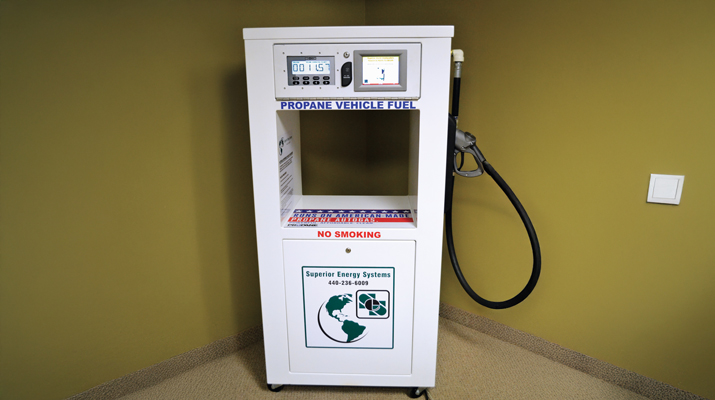West turns wild with extreme cold, marketers scrambling for supply
The West wasn’t spared from weather extremes that seem to be the norm today.
As the bitterly cold air moved in, states of emergencies were declared and hours-of-service (HOS) exemptions granted, allowing propane delivery drivers to meet the high demand.
Arizona, California, Colorado, Nevada, New Mexico and Utah relaxed HOS requirements in some form so companies could ultimately provide propane to consumers.
How cold was it? Baron Glassgow, executive director of the Arizona Propane Gas Association and several other western state associations, says temperatures in Phoenix plummeted to 25 degrees for four straight nights in mid-January.
“I’ve lived here for 20 years, and I’ve never seen that. It was severe cold,” says Glassgow, noting that temperatures there dip below freezing maybe once every three to four years. Temperatures in northern Arizona sunk below zero.
Propane marketers can deplete their storage quickly when these cold temperatures persist. Transports sit in long lines to replenish the product or are forced to seek alternative sources when something goes awry at the storage site or refinery.
New Mexico refineries (Wingate and Artesia) went offline during the cold spell, while others in the region went on allocation, Glassgow says. Long waits ensued at Arizona storage facilities in Adamana and Bumstead.
“It was a cascade of things that were happening,” says Glassgow, who also serves as senior director of Association Management Services for the National Propane Gas Association.
In California, prolonged cold temperatures coinciding with a half-dozen refineries scaling back or shutting propane production to perform yearly maintenance stressed the supply chain.
“Once part of the supply chain starts breaking down, it’s a domino effect,” says Lesley Brown Garland, president and CEO of the Western Propane Gas Association.
To provide some relief, the California Highway Patrol issued a limited exemption to its HOS requirement for the propane industry, for the first time since 2007, Brown Garland says.
By the end of January, propane marketers were still working to get caught up. On Jan. 25, Arizona extended its HOS exemption for another two weeks, until Feb. 9.
“You try to be prepared, but it’s hard to hire help for one month and you’re overwhelmed when it gets that busy,” says Bob Evans, general manager of Arizona Propane Co. in Scottsdale, Ariz.
The process
When it comes to declaring HOS exemptions, each state has its own process. The governor’s office, a state highway patrol or the Department of Transportation will grant the exemption at the request of state propane associations who hear from their membership or are simply proactive by making a few telephone calls.
Once that request is made, the response time varies – from three days to three weeks, Glassgow says.
“But one of the challenges we had this year: It wasn’t as though we had this huge winter storm,” he says. “It didn’t dump 3 feet of snow on the ground. It was just harshly cold.
“Because it was not this typical winter storm that makes it obvious and our dealers were doing a good job of making sure their customers didn’t run out of fuel, some of the government offices were reluctant to issue these exemptions because it was not apparent to them there was a problem.”
The exemptions allow relief from the U.S. Department of Transportation’s Federal Motor Carrier Safety Administration safety requirements for commercial truck drivers. Visit www.fmcsa.dot.gov for more information on HOS.
Glassgow notes a federal regulation particularly helpful for the propane industry. When a state declares an emergency, the HOS exemption is granted to any motor carrier providing relief to that state, regardless of its starting point. So that motor carrier can work under the exemption while passing through one or more states to reach the affected state.
That can be extremely helpful, especially when local sources of propane are depleted and marketers request supply from another state.
Brian Richesson is the editor in chief of LP Gas Magazine. He can be reached at brichesson@northcoastmedia.net or 216-706-3748.
















